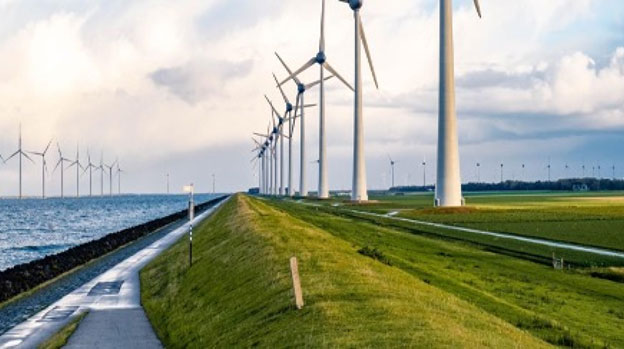From Challenges to Solutions: Unleashing Africa's Potential for Achieving SDGs

ADDIS ABABA, Ethiopia, Aug 30 (IPS) - September 2023 marks the halfway point to the deadline for achieving the 2030 Agenda and the Sustainable Development Goals (SDGs). Yet, globally we are still far off-track, and Africa is only halfway towards achieving the SDGs, with nearly 600 million Africans still lacking access to electricity and 431 million people living in extreme poverty.
While the challenges associated with achieving the 2030 Agenda remain complex, the slow progress in Africa is, fortunately, redeemable. Africa possesses abundant assets to achieve the SDGs. The challenge lies in effectively harnessing these resources to turn Africa’s comparative advantages into global competitive advantages.
As a first step, we need to develop new narratives that move away from portraying Africa as a “victim” and instead emphasise Africa’s position as a solutions powerhouse for rescuing the SDGs and climate mitigation.
Africa can play a crucial role in securing global food, water, and energy security and accelerate the decarbonisation of production systems. The continent has 60% of the world’s arable land, 40% of the world’s solar irradiation potential, 71% of global cobalt production, and 77% of the world’s platinum.
Cobalt and platinum, in particular, are critical minerals for the energy transition and electrification of transport systems. However, Africa’s extractive sector is an enclave with insignificant linkages to local economies.
Secondly, we must go beyond the logic of resource extractivism that locks the continent in perennial booms and busts that accentuate Africa’s vulnerabilities to global shocks. To address this, African governments must implement smart industrial policies, foster local value addition, develop regional value chains, and promote resource-driven industrialisation.
These should be supported by well-constructed and executed local content and national suppliers’ development programmes, which will ultimately lead to the emergence of well-performing local small- and medium-scale enterprises.
A notable disruptive example is the development of a battery, electric vehicle, and renewable energy value chain in the Democratic Republic of Congo and Zambia, valued at US$46 trillion by 2050. We need to replicate these examples across the continent.
The evidence is clear that climate action will generate dividends for the continent. To this effect, we need to go beyond GDP metrics. For instance, many African countries, including those in the Congo Basin, possess vast natural wealth, which often goes unaccounted for in official statistics.
Therefore, we need to strengthen the capacities of national statistical systems to incorporate natural capital accounting into national accounts. With this, countries can assess the monetary value of their natural wealth to design ecological compensation schemes, participate in carbon markets, reinforce the value proposition of nature conservation, and secure more fiscal space.
At the right price (e.g., US$120/ton of C02 sequestrated), carbon credit markets could generate US$82 billion of innovative financing per year, with the Congo Basin being a hotspot for this.
However, the fundamentals must be right to secure macroeconomic stability and sustainable financing. These include enhanced trade, sustainable industrialisation, and economic diversification to reduce the continent’s vulnerabilities, improve the share of tradeables in total exports, and generate the millions of jobs that Africa needs for its youthful population.
The African Continental Free Trade Area (AfCFTA), ratified in 2019, offers great potential for trade and investment on the continent, helping to catalyse the development of regional value chains and enable the continent to climb the ladder in global value chains. African multilateral development banks also play an important role in de-risking investments on the continent on the road to making Africa a globally competitive investment destination.
Looking ahead, we should also build on the outcomes of the recently held UN Food Systems Summit and 2nd Stocktaking Moment and accelerate the implementation of the Common African Agro-industrial parks Programme (CAAPs) to promote continental agro-industrialisation and integration.
These agro-industrial parks have the potential to stimulate public and private investment in agro-industries, ensure greater food security across Africa, and increase the value of Africa’s food and agriculture product exports.
Additionally, access to affordable, reliable, and sustainable energy is crucial to achieving many of the SDGs, ranging from poverty reduction and advancements in health, education, water supply, and industrialisation to mitigating climate change, yet Africa faces a huge energy gap. Building the Inga III and IV dams must be prioritized to increase access to renewable electricity.
To finance these and other transformational projects, dormant funds in our pension funds should be mobilized as efforts to reform the global financial architecture and reduce the cost of borrowing for our countries continue.
Africa must keep its eye on the prize and chart its own path to rescuing the SDGs. Isolated solutions and “business as usual” projects will no longer suffice. We need to strengthen Africa’s institutions and agency by building ecosystems for transformational change and leadership.
Drawing inspiration from the ‘moonshot’ programmes that led to the historic moon landing in 1969, economist Mariana Mazzucato highlights the importance of creating structures that foster collaborative, mission-oriented thinking, and a shared sense of purpose.
To build such an environment on the continent, ultimately, we need leaders from all walks of life who are responsive and transparent, embrace multi-stakeholder consultations, and work inclusively towards strengthening social compacts and domestic accountability to fully harness Africa’s potential for achieving the SDGs.
Antonio Pedro is Acting Executive Secretary, UN Economic Commission for Africa and UN Sustainable Development Solutions Network Leadership Council Member
IPS UN Bureau
Follow @IPSNewsUNBureau
Follow IPS News UN Bureau on Instagram
© Inter Press Service (2023) — All Rights ReservedOriginal source: Inter Press Service
 Global Issues
Global Issues